Photo Essay by NICK ESTES
Last Friday, April 19th, hundreds of scholars, community activists, and students gathered at the University of New Mexico to attend a symposium to honor the life and work of John Redhouse. The symposium, titled “Indigenous Liberation and the Grounds of Decolonization” was co-sponsored by La Jicarita along with the UNM Department of American Studies, the UNM Institution for American Indian Research, the student-run KIVA Club, the UNM Program in Community and Regional Planning, and the American Studies Association’s Community Partnership initiative. American Studies professors Jennifer Denetdale and Alyosha Goldstein joined David Correia in organizing the event.
Born and raised in Farmington, NM, John Redhouse has been a life-long Indian rights activist. He was a leader of the National Indian Youth Council. He was most famously associated with the era of Red Power activism and organizing of various radical liberation groups such as Indians Against Exploitation, which operated from 1972-73 and the Coalition for Navajo Liberation in 1974 in Gallup, NM. The experiences of combatting anti-Indian border town racism in places like Farmington and Gallup were formative in Redhouse’s activism and scholarship. Today, Redhouse’s scholarship/activism centers on Dine’ liberation and decolonization movements with an emphasis on ongoing grassroots struggles against the extractive resource industries’ degradation of Dinetah’s ancestral homelands. Friday’s event focused on these aspects of Redhouse’s lifetime commitment to Indigenous and environmental activism, particularly bridging community activism with academic engagement and Indigenous nations.
The day’s events began at 8:30 AM with a series of panel presentations by scholars from UNM who work on and study indigenous liberation struggles, and concluded well after 7:30 PM. The program included individual student and faculty presentations, workshops by activist/scholars that focused on community organizing, and a conversation between Jennifer Denetdale and John Redhouse. The evening ended with a roundtable discussion centered on continuing Indigenous decolonization and liberation. Presenters included: American Studies PhD students Melanie Yazzie and Nick Estes, Anthropology Assistant Professor Cristobal Valencia, Black Mesa community organizer Nicole Horseherder, long-time Indigenous rights activist and scholar Roxanne Dunbar-Ortiz, Black Mesa community organizer and activist Klee Benally, La Jicarita editor-in-chief Kay Matthews, and Community and Regional Planning Program Assistant Professor Laura Harjo.
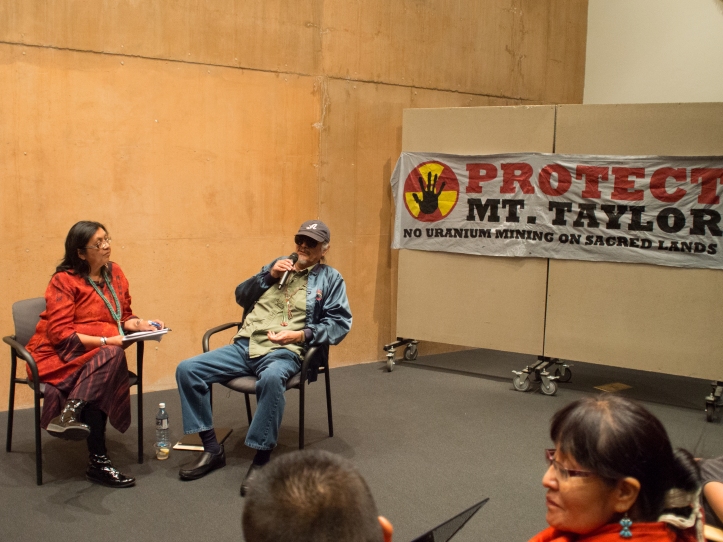
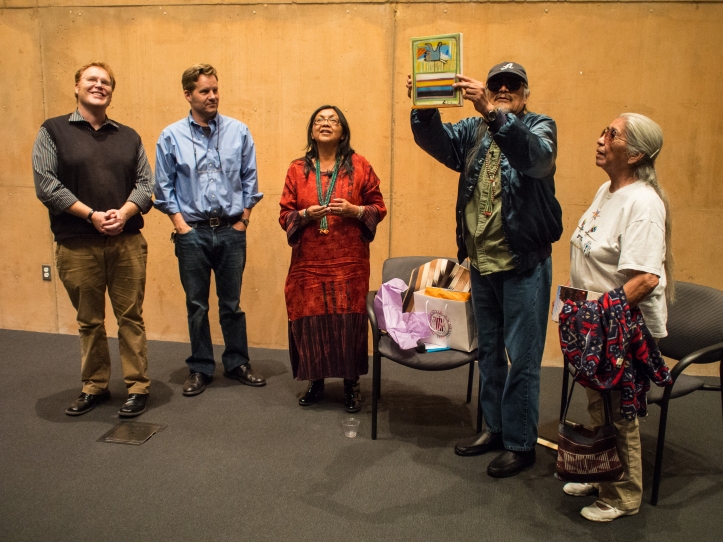
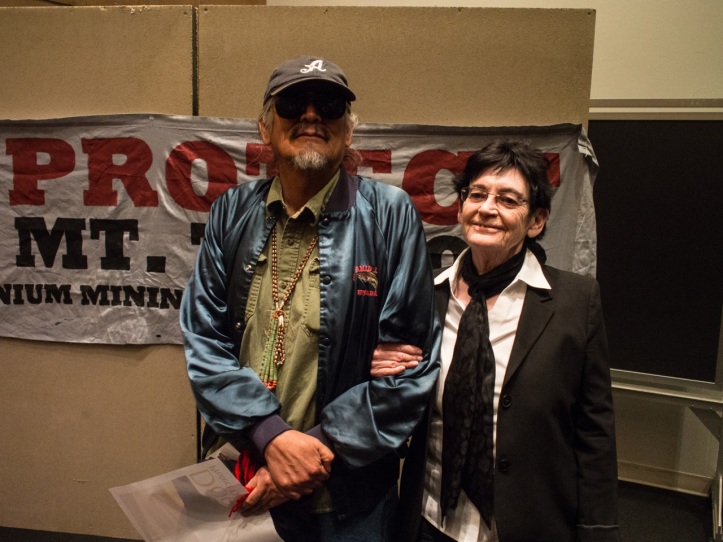
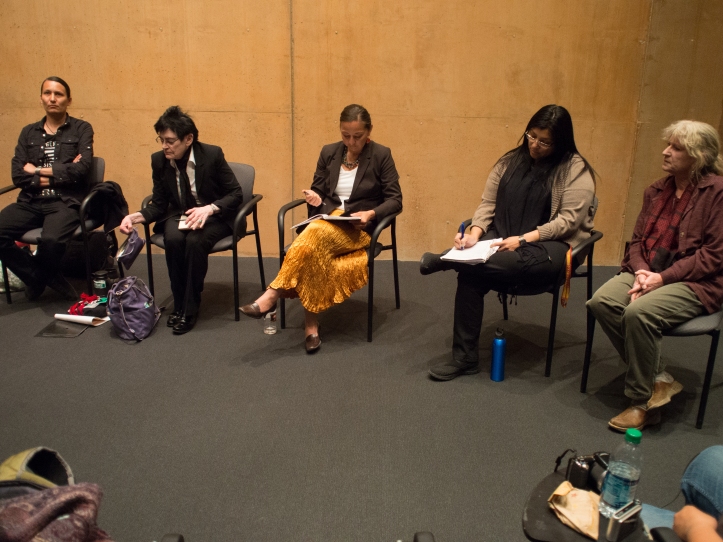
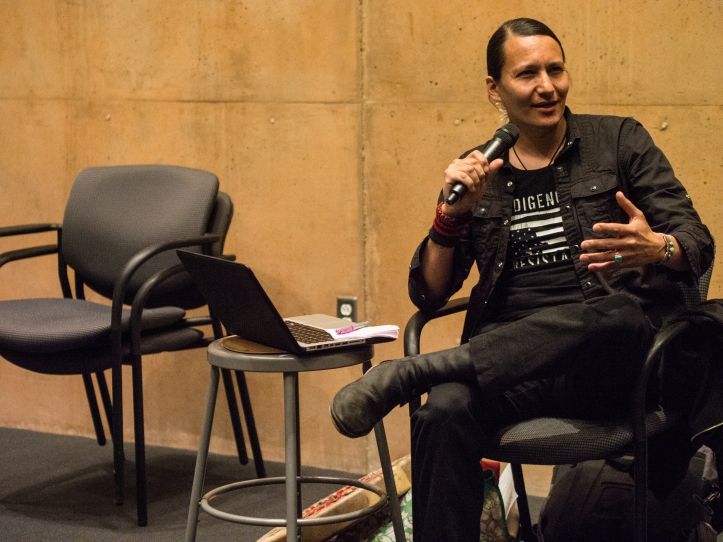
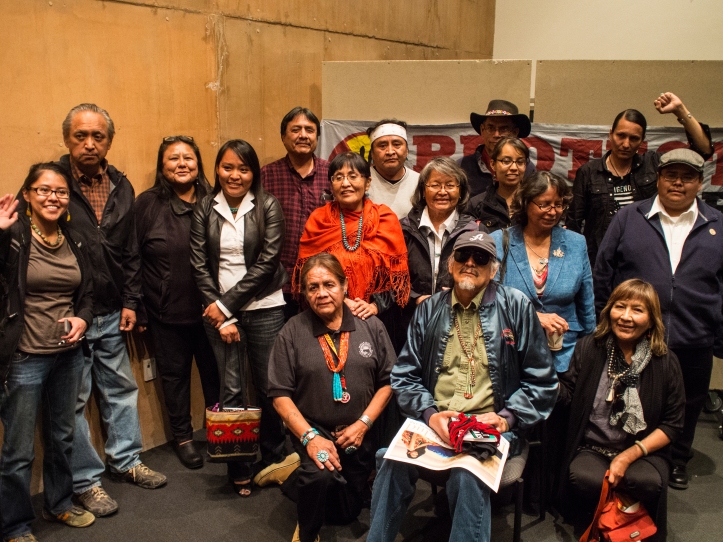

Reblogged this on Unsettling America.
Beautiful photo-essay; thanks Nick and La Jicarita. It was an extraordinary day, inspiring. Roxanne
Thanks, Kay, for this great photo-essay. Due to a number of obligations all converging Friday I was not able to attend the seminar but I very much want to pay tribute to the life-long work of John Redhouse. Live like him!
Mark